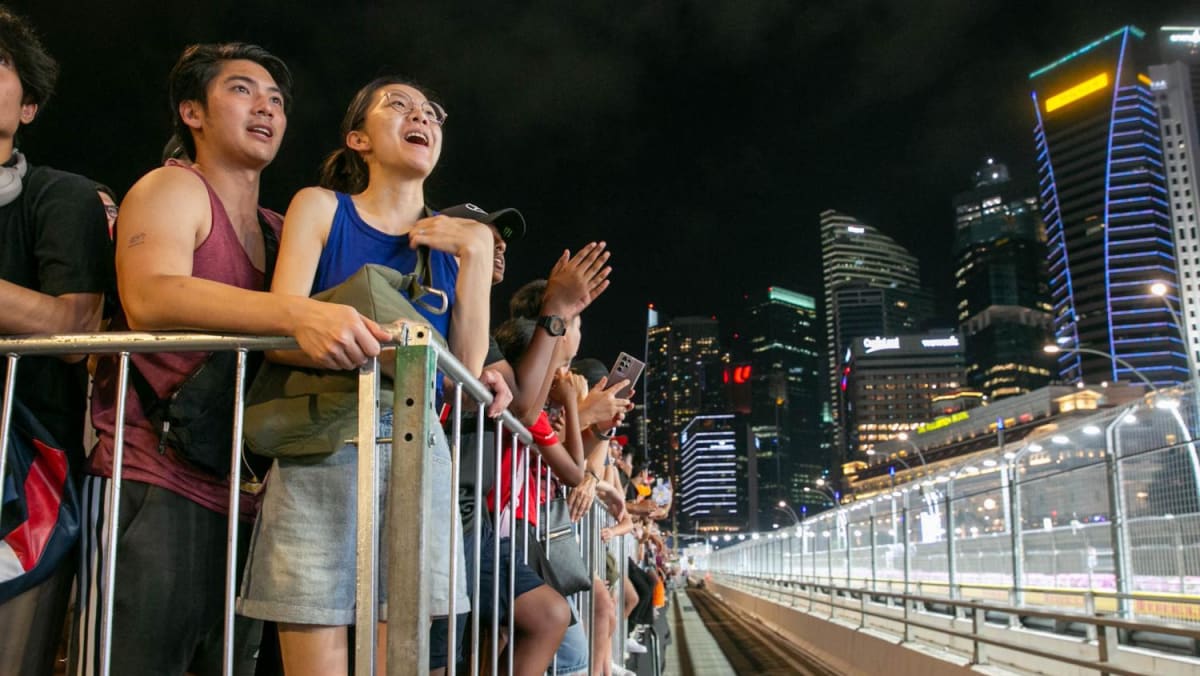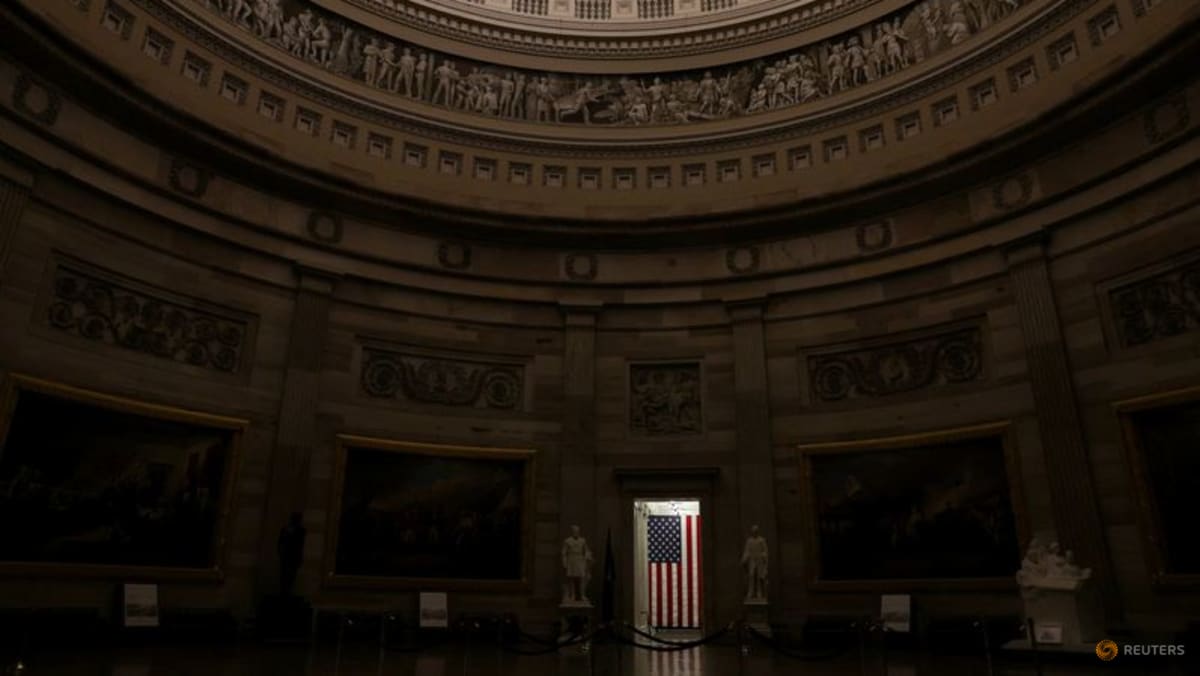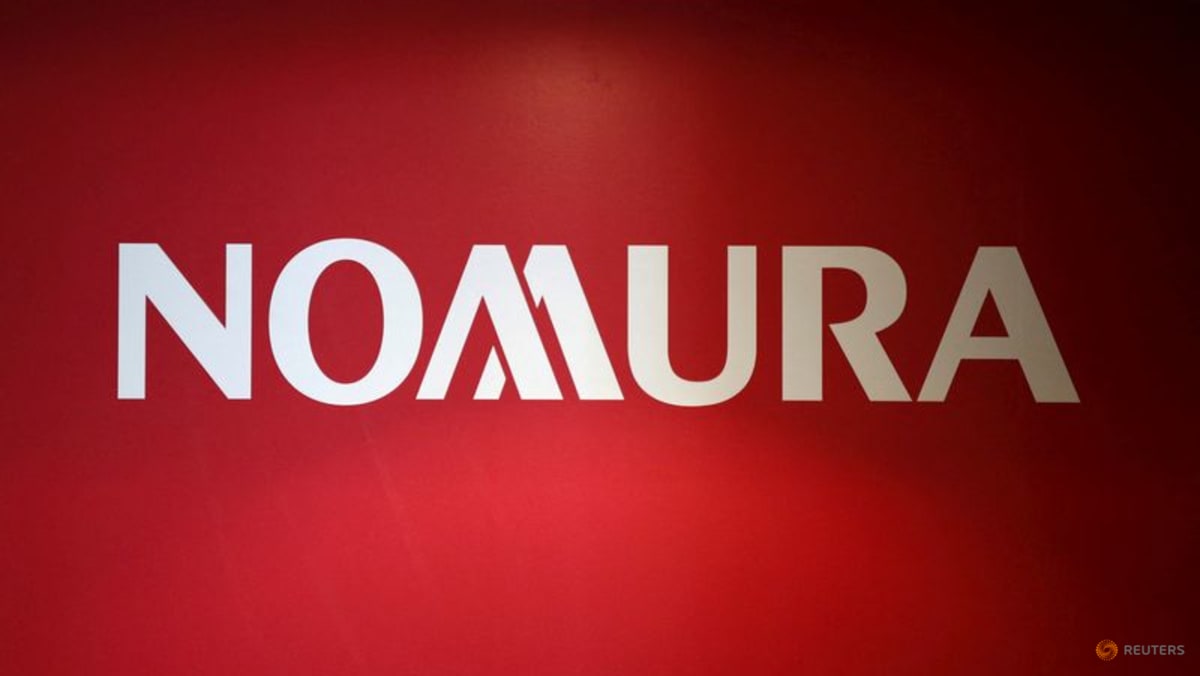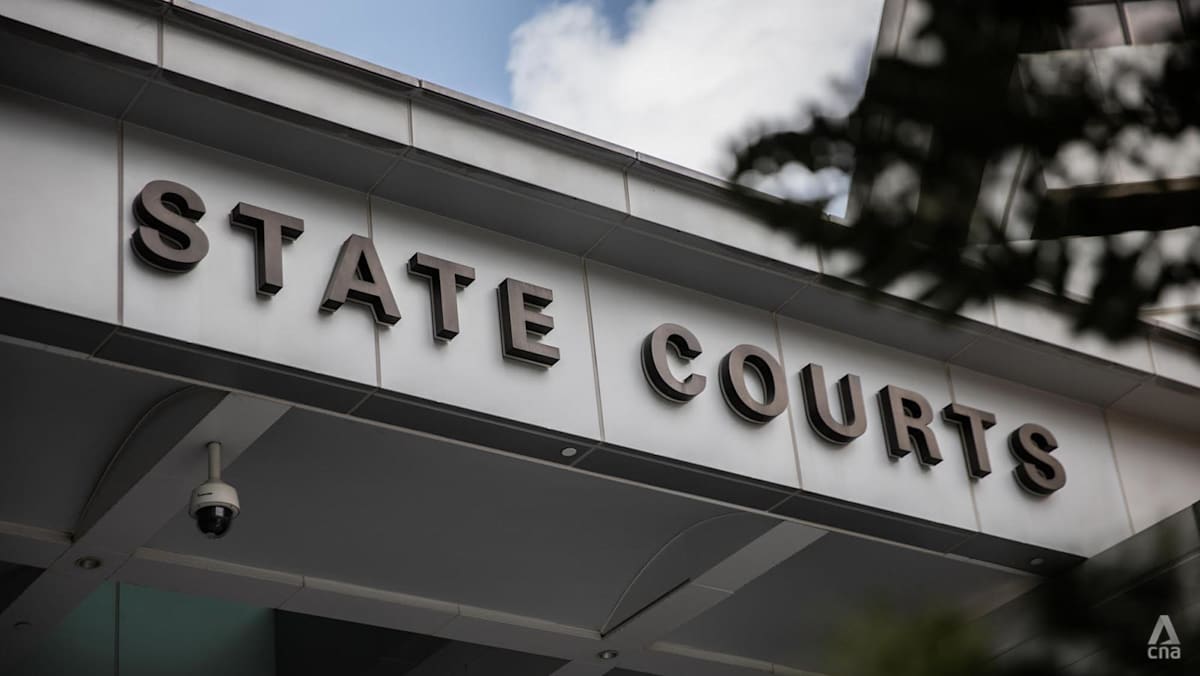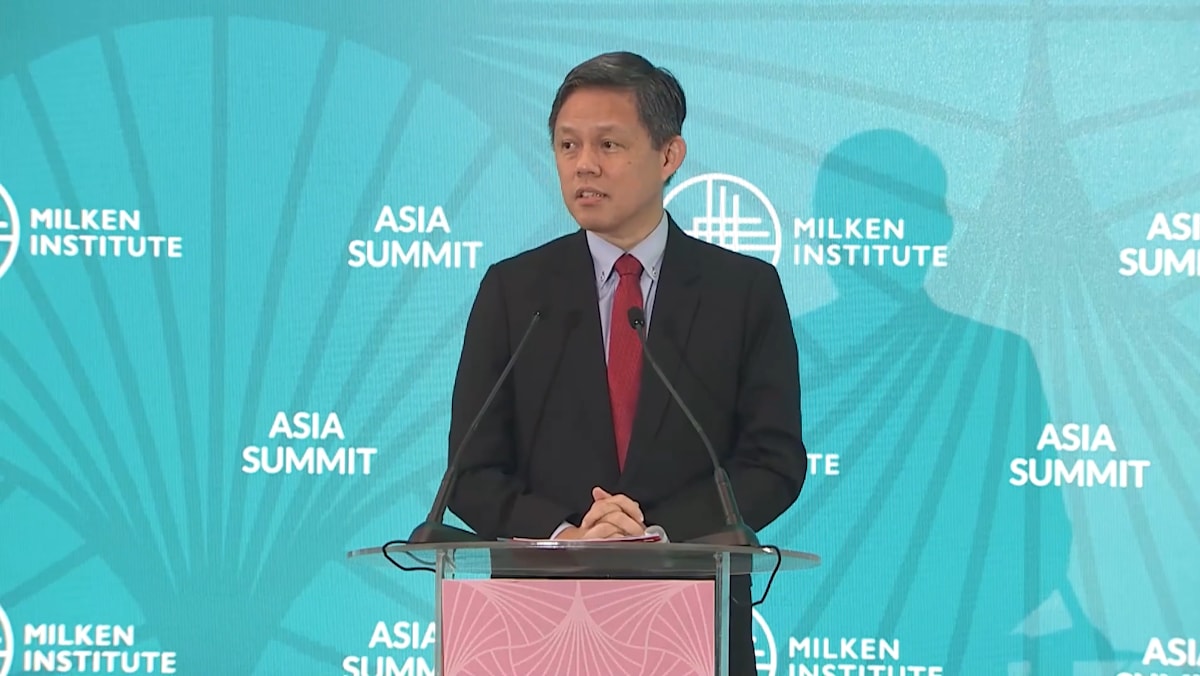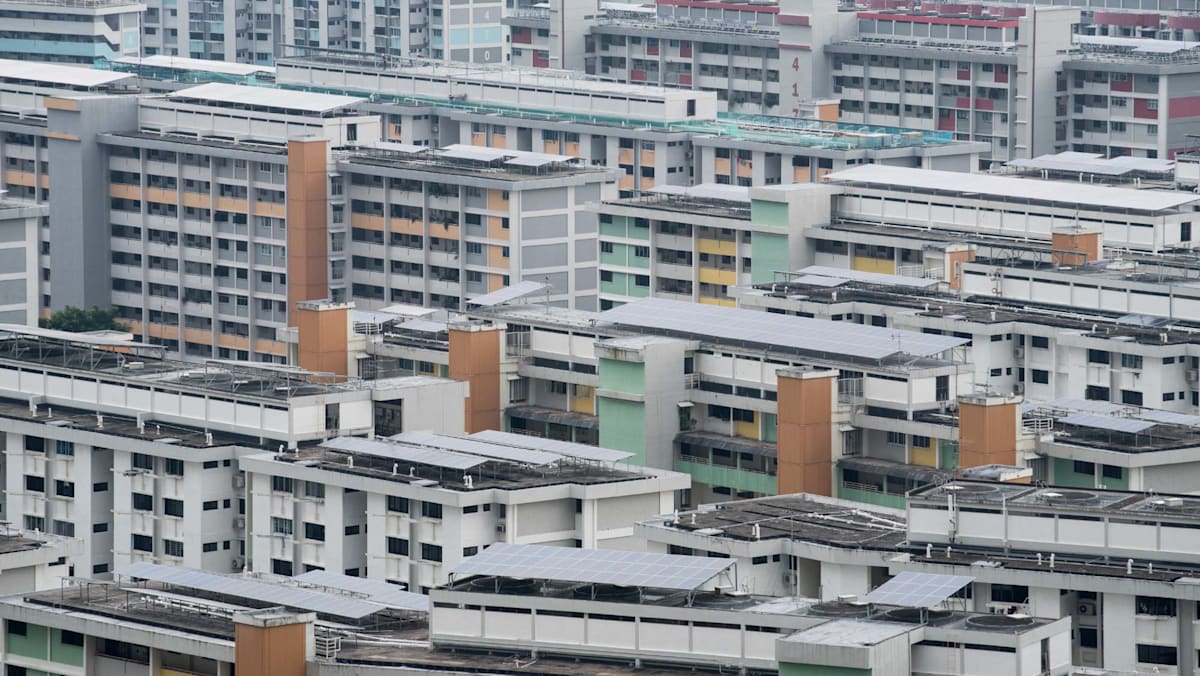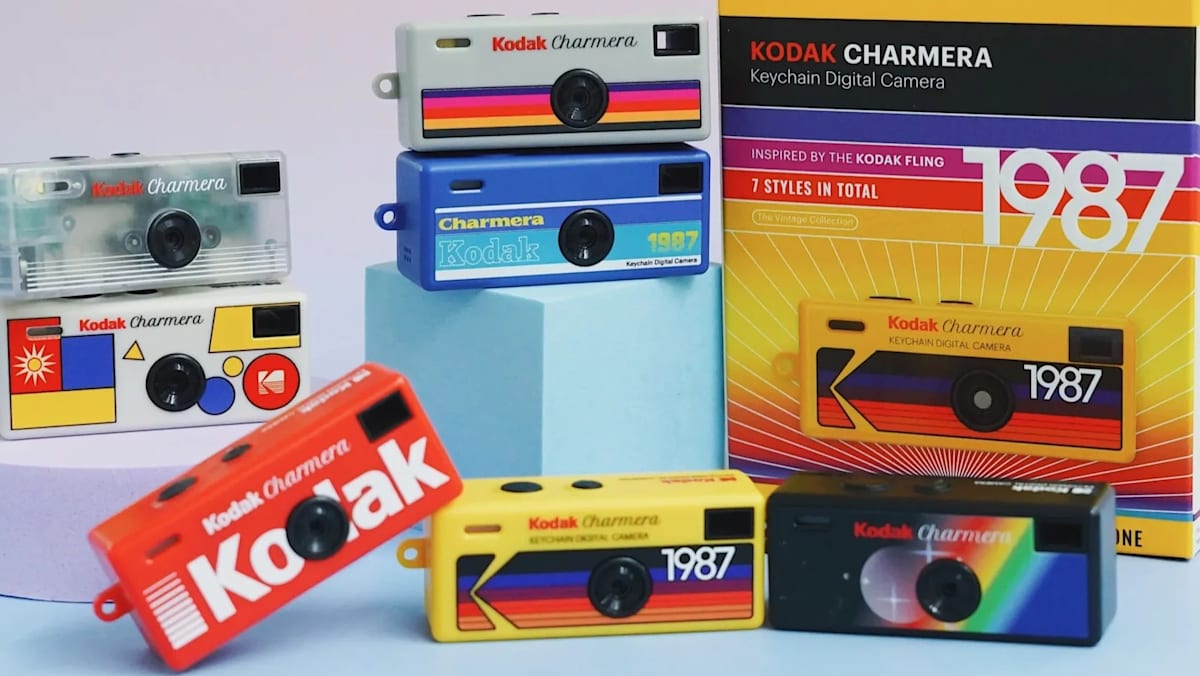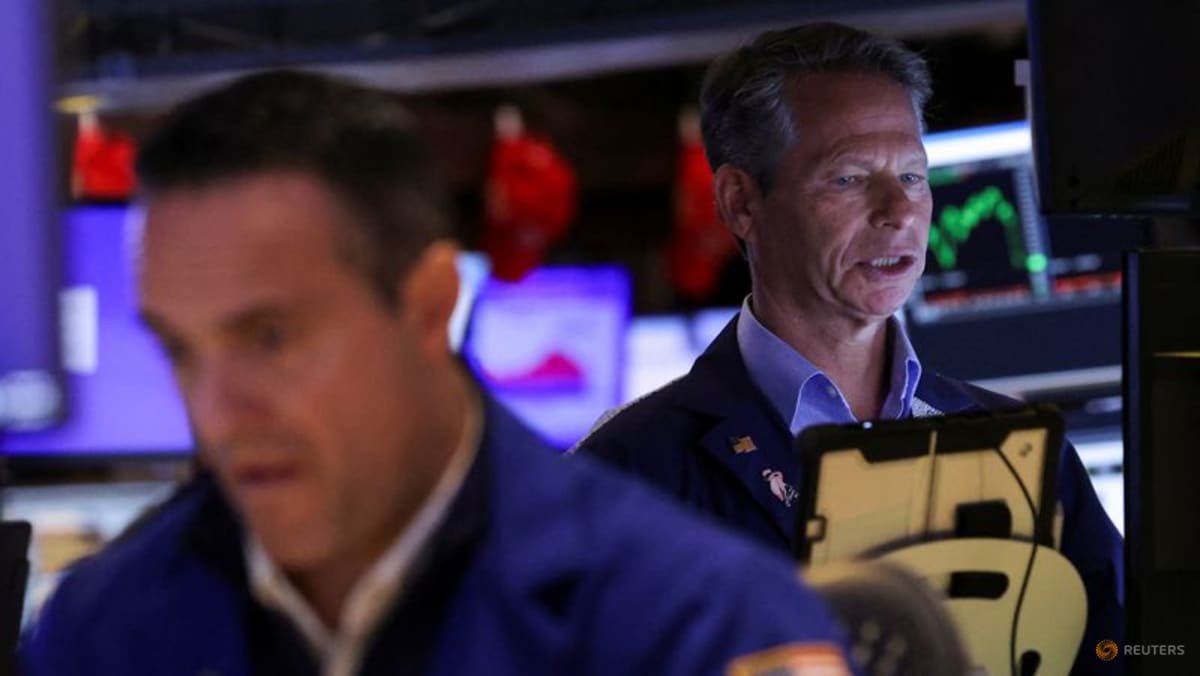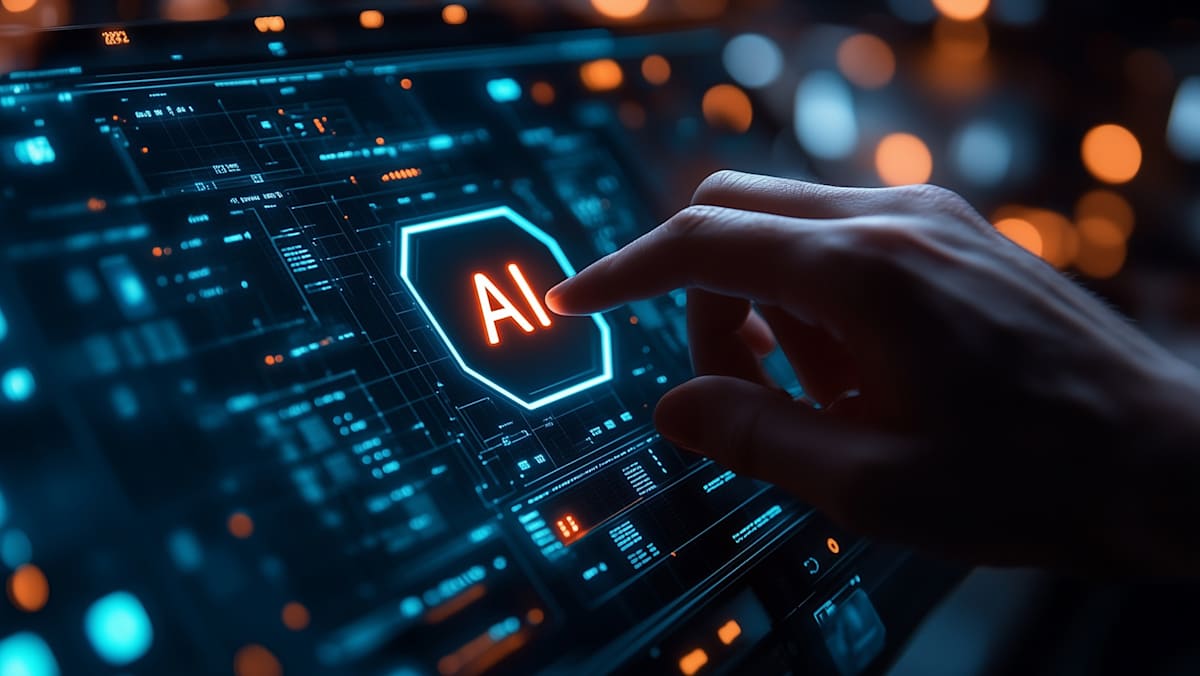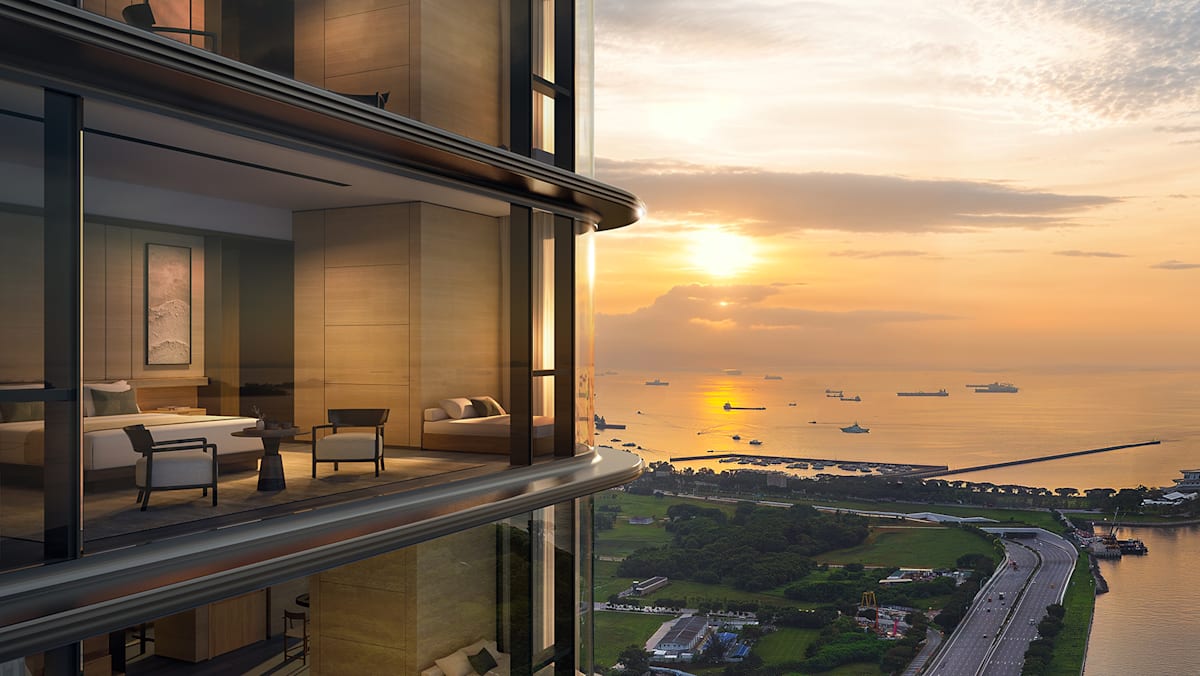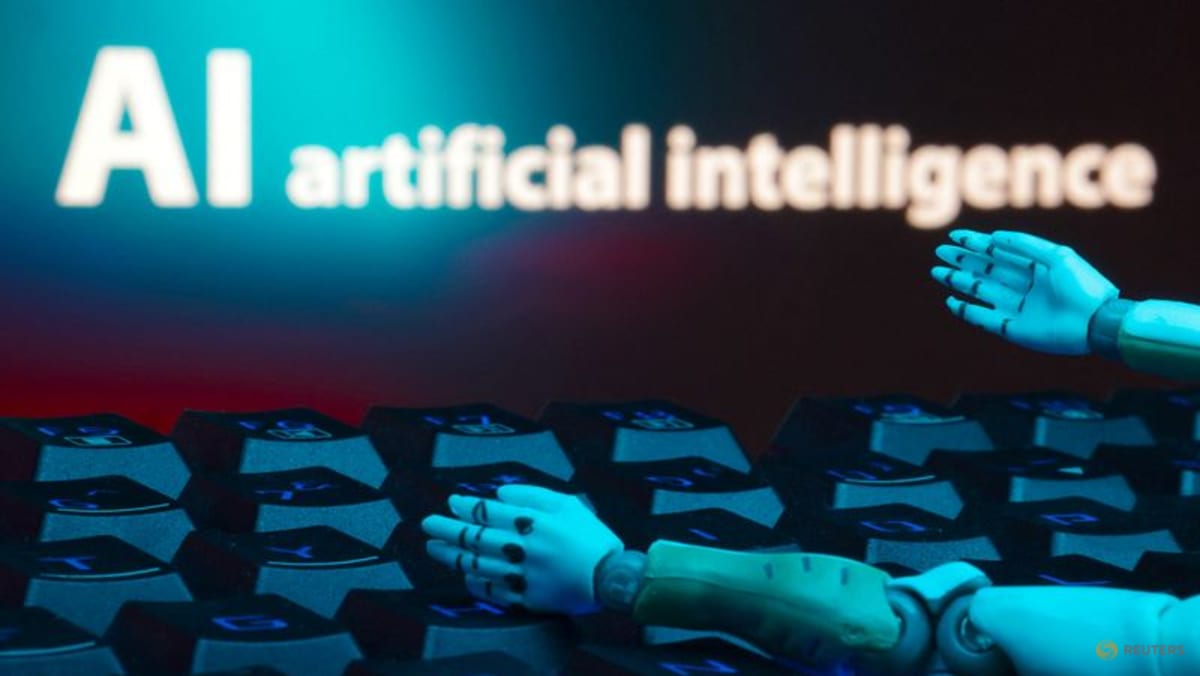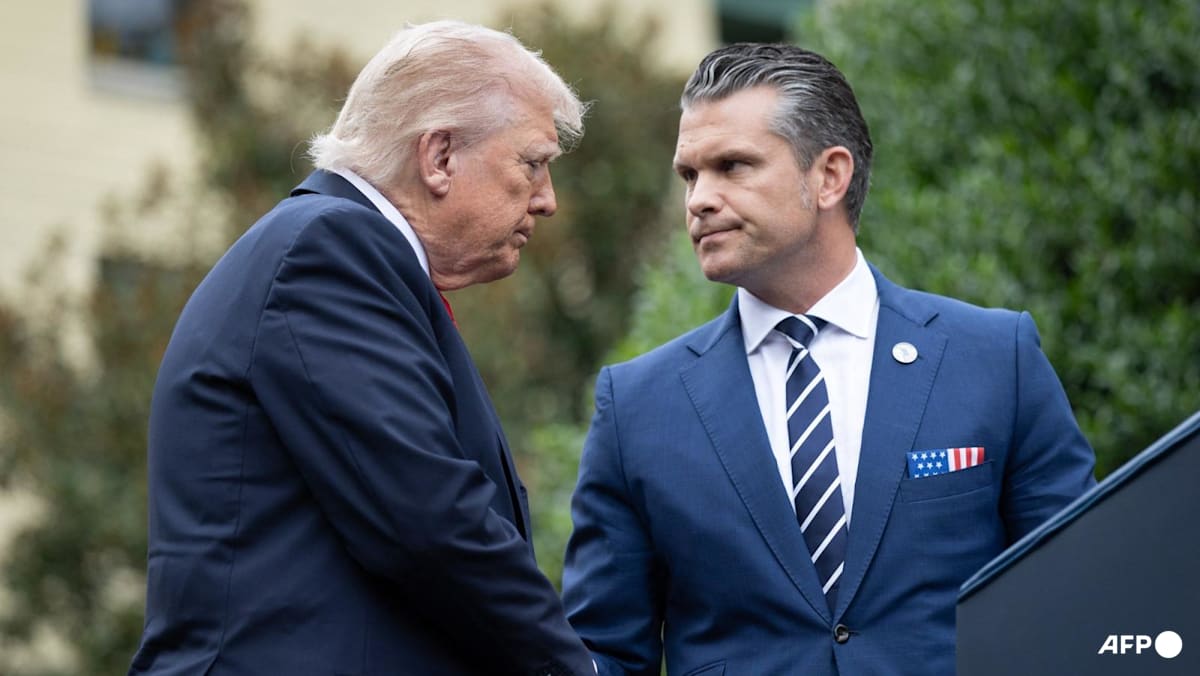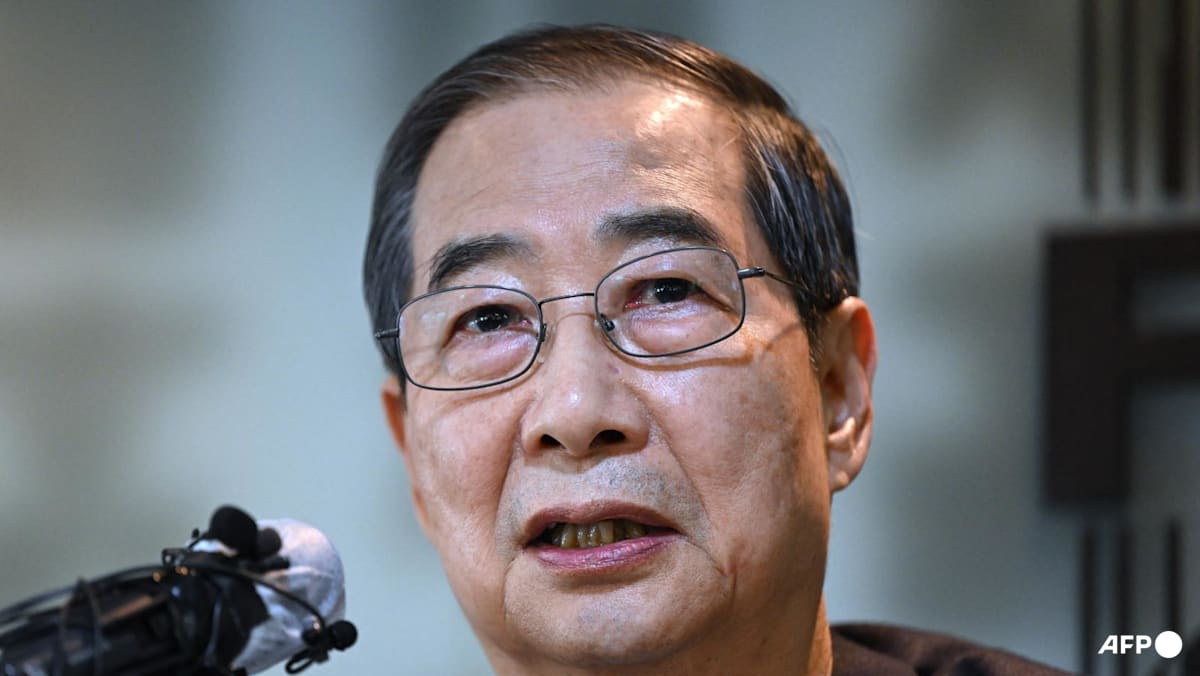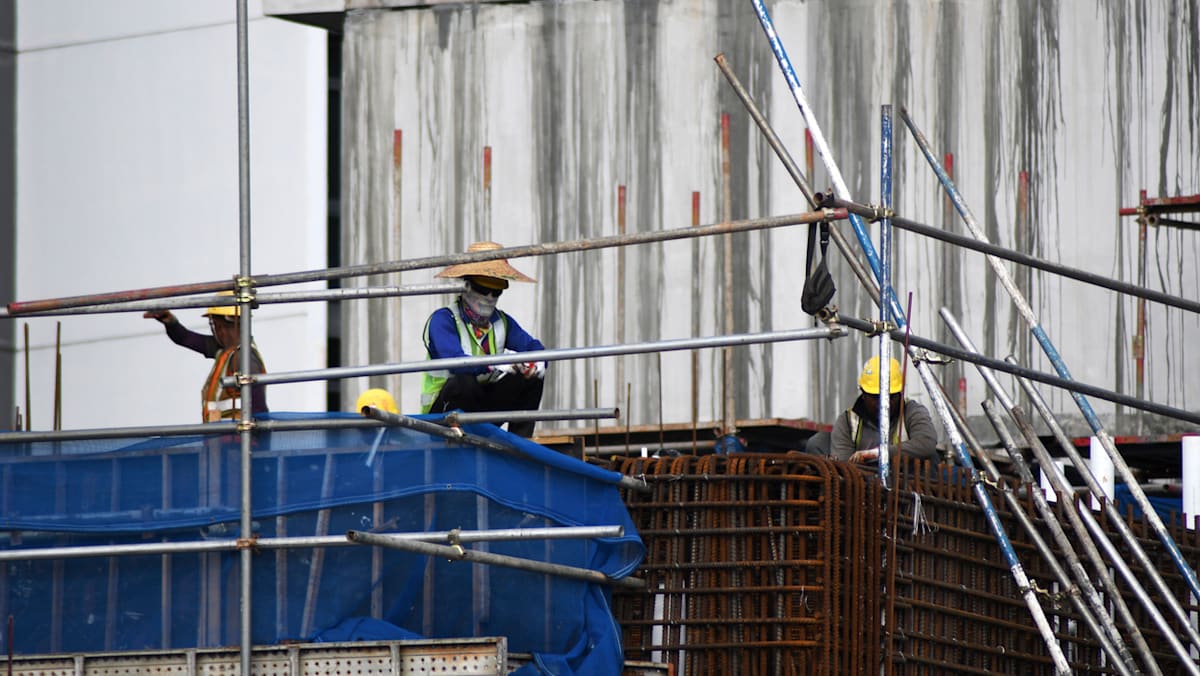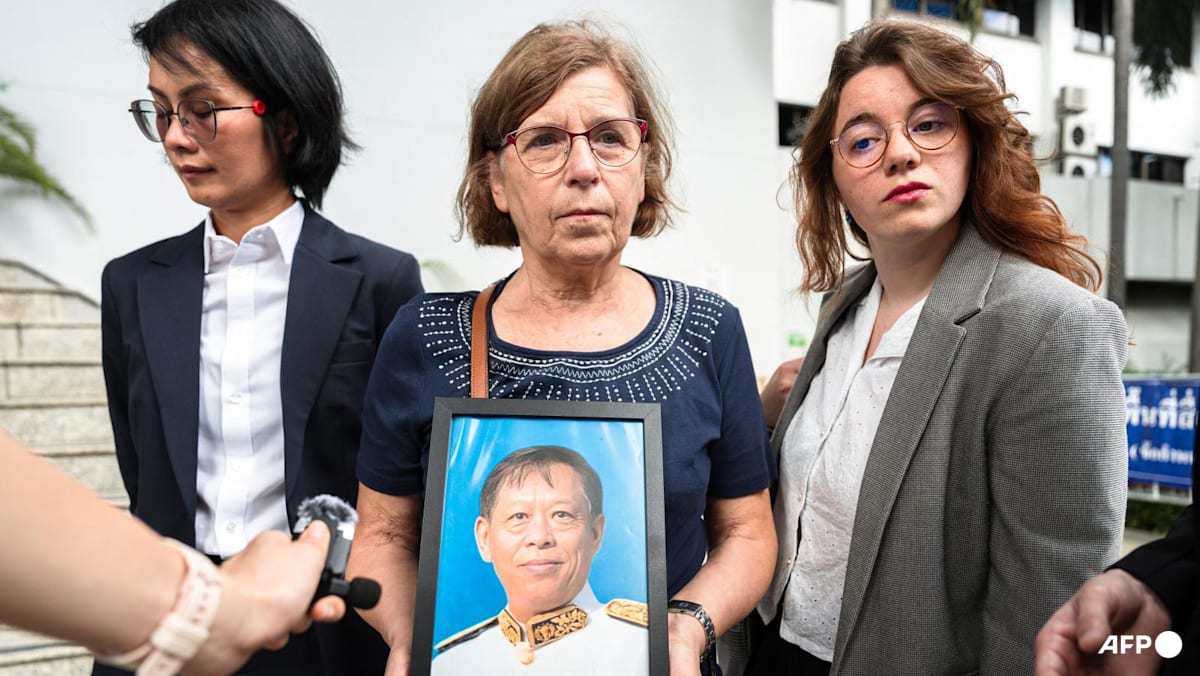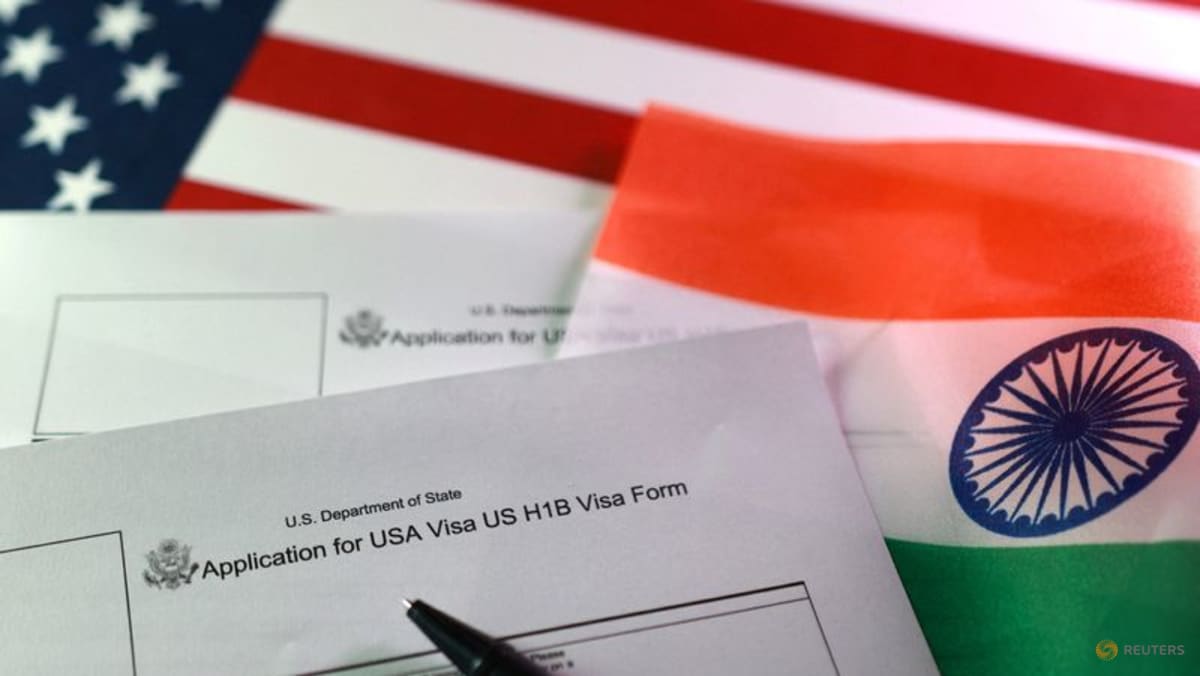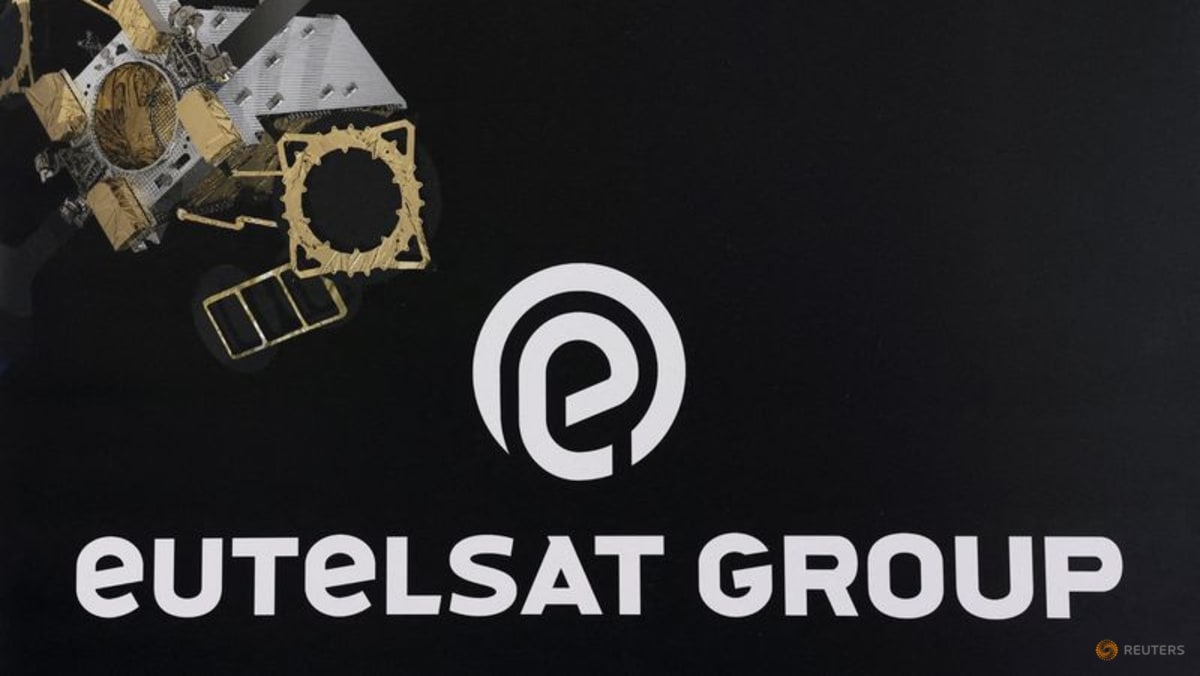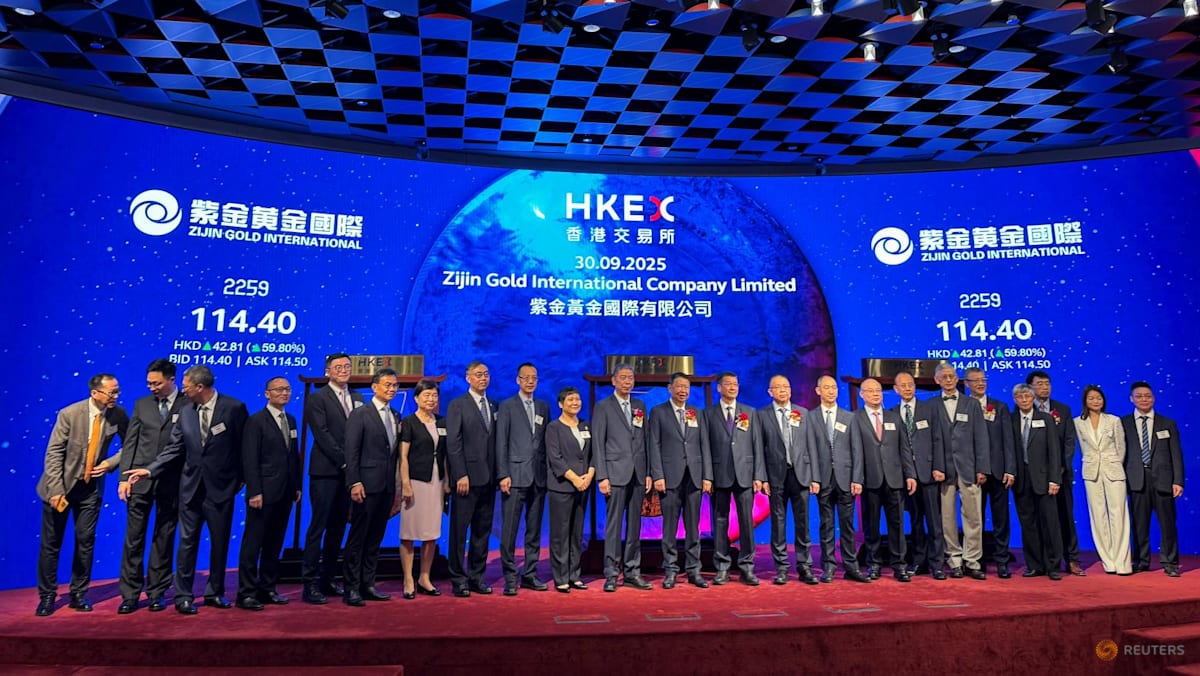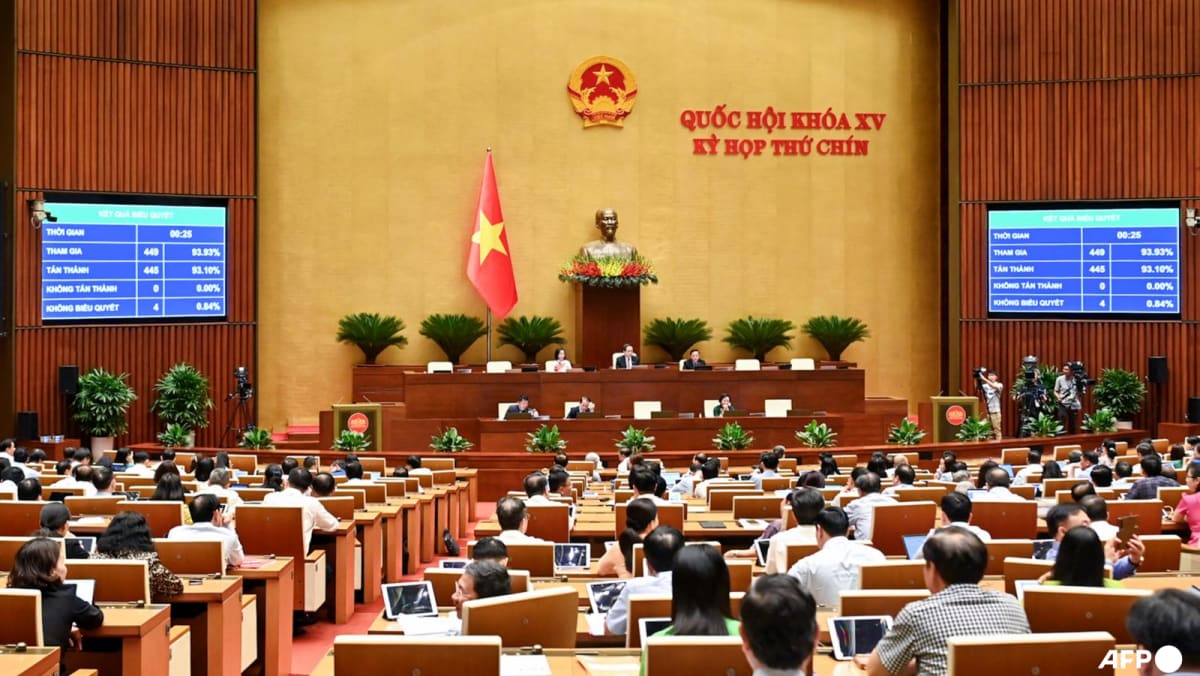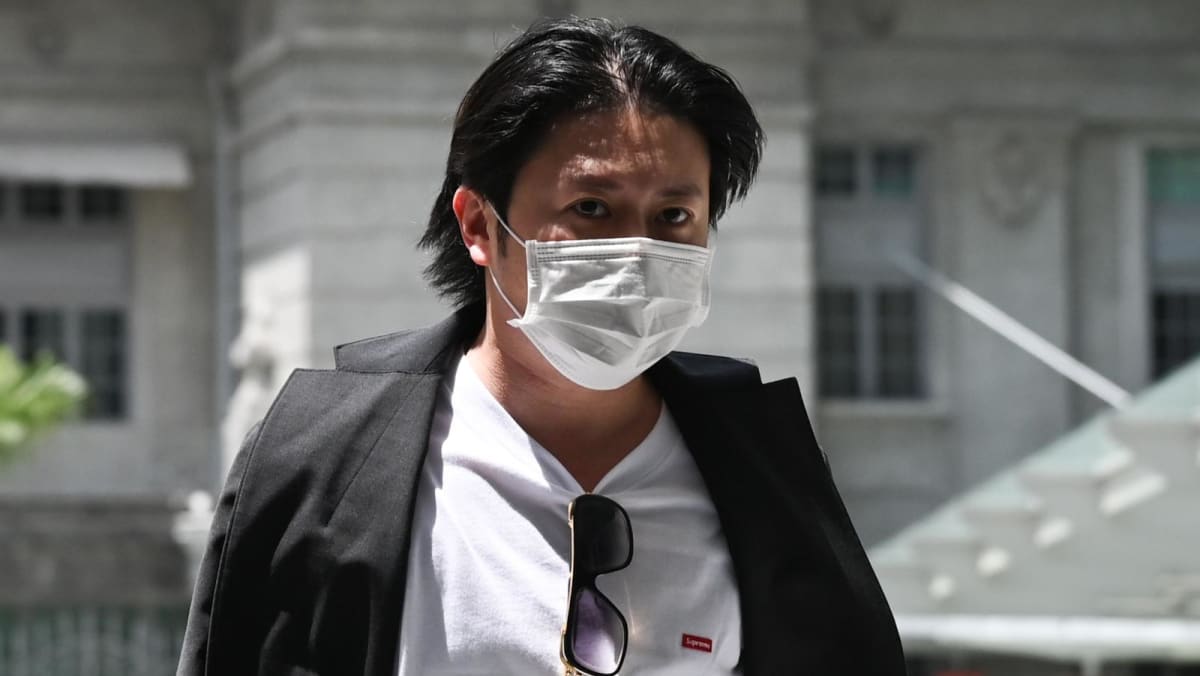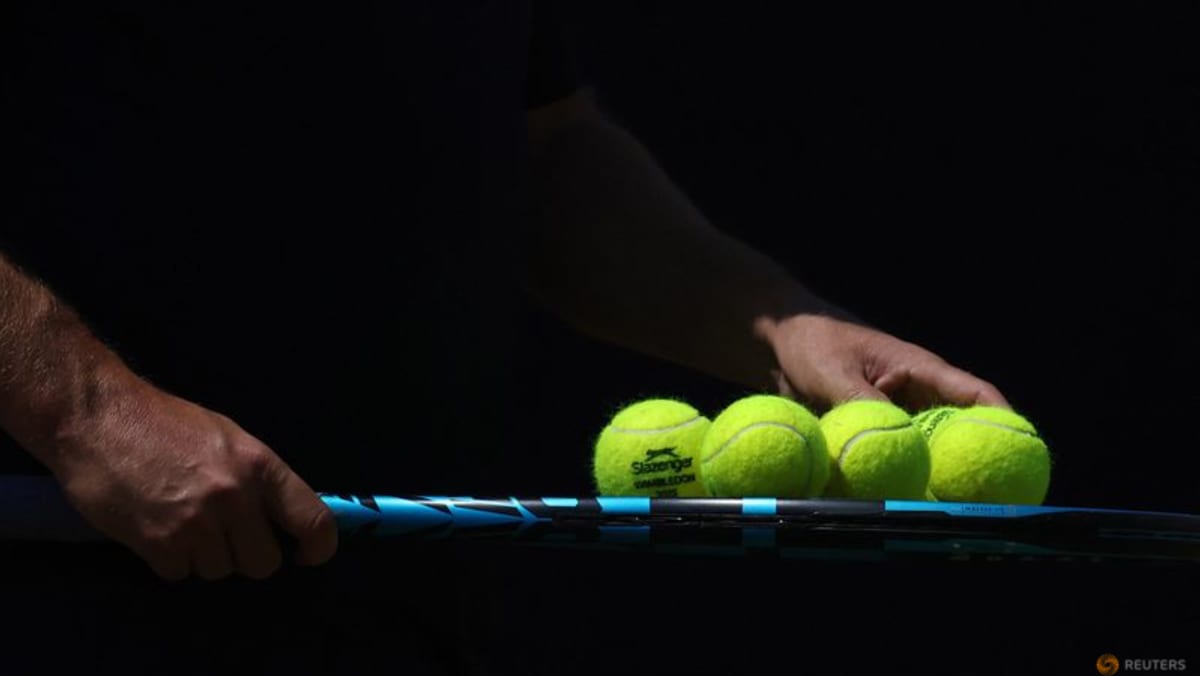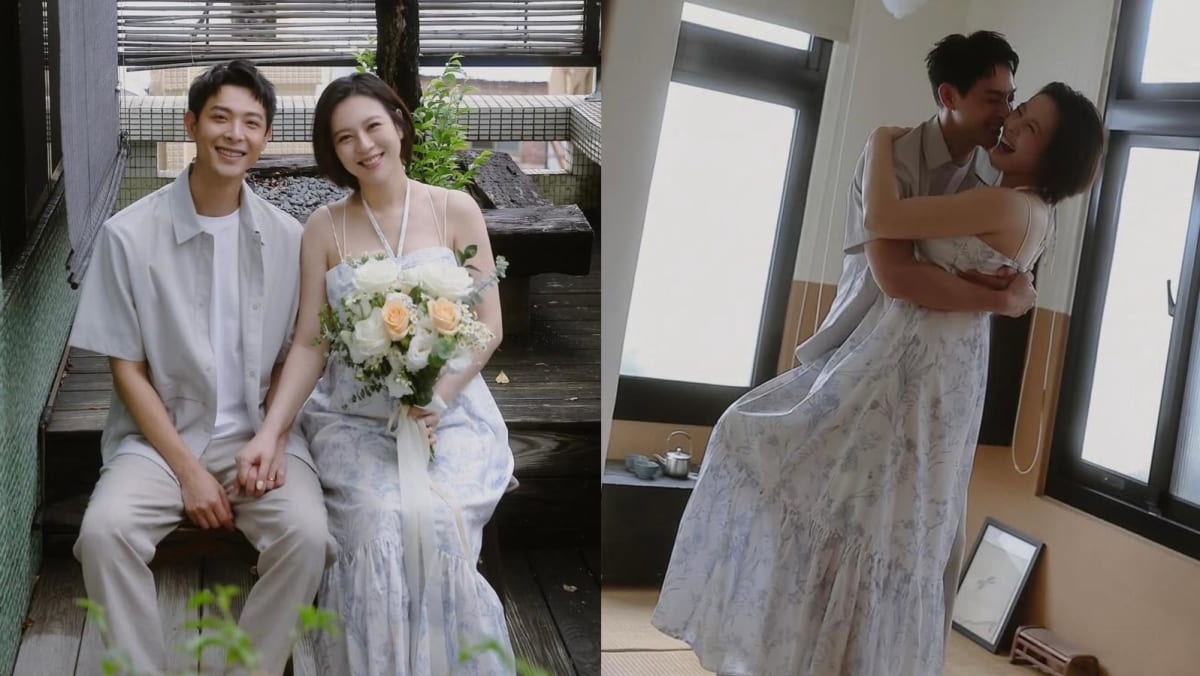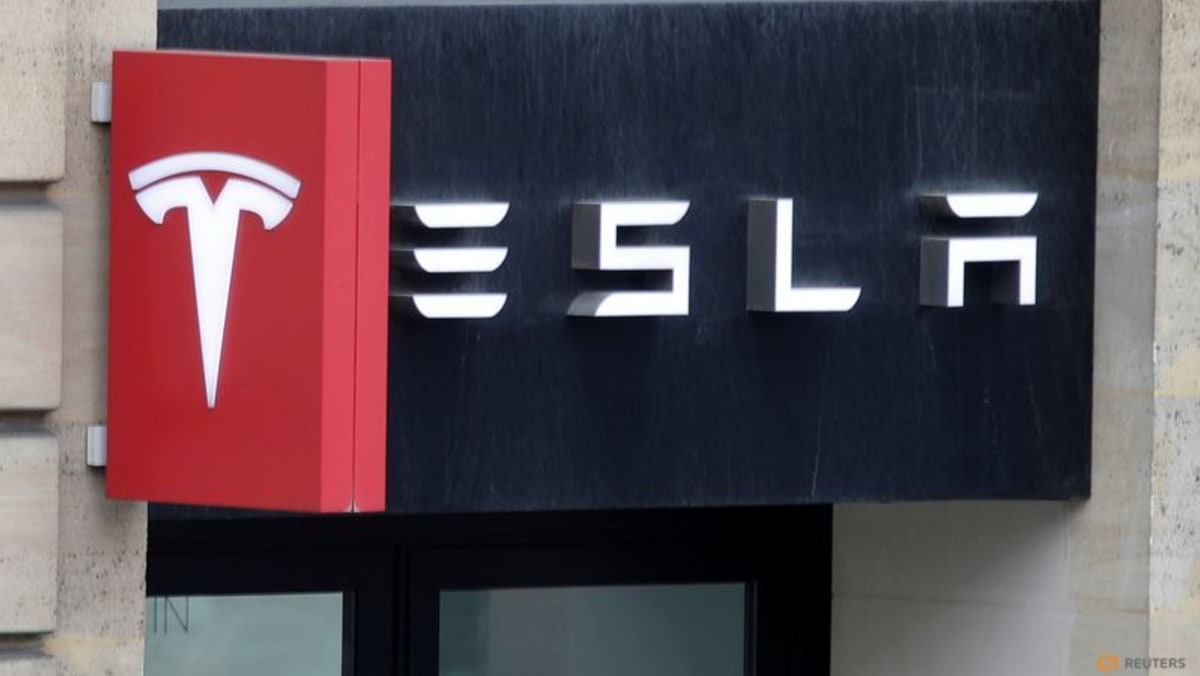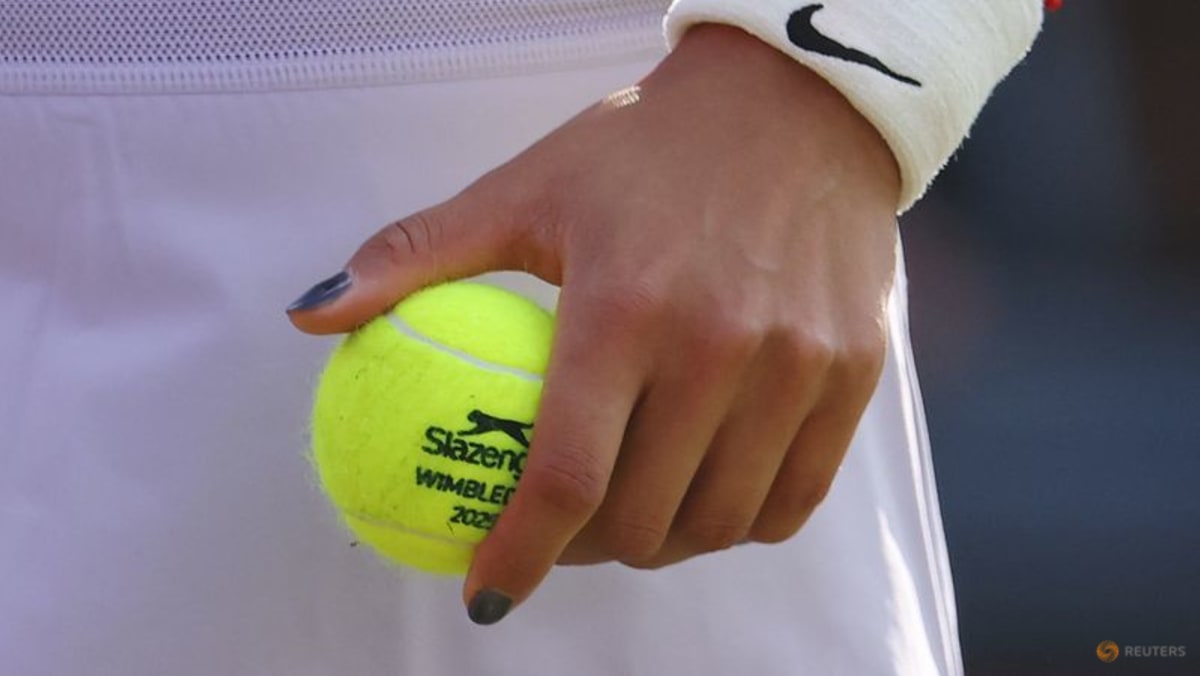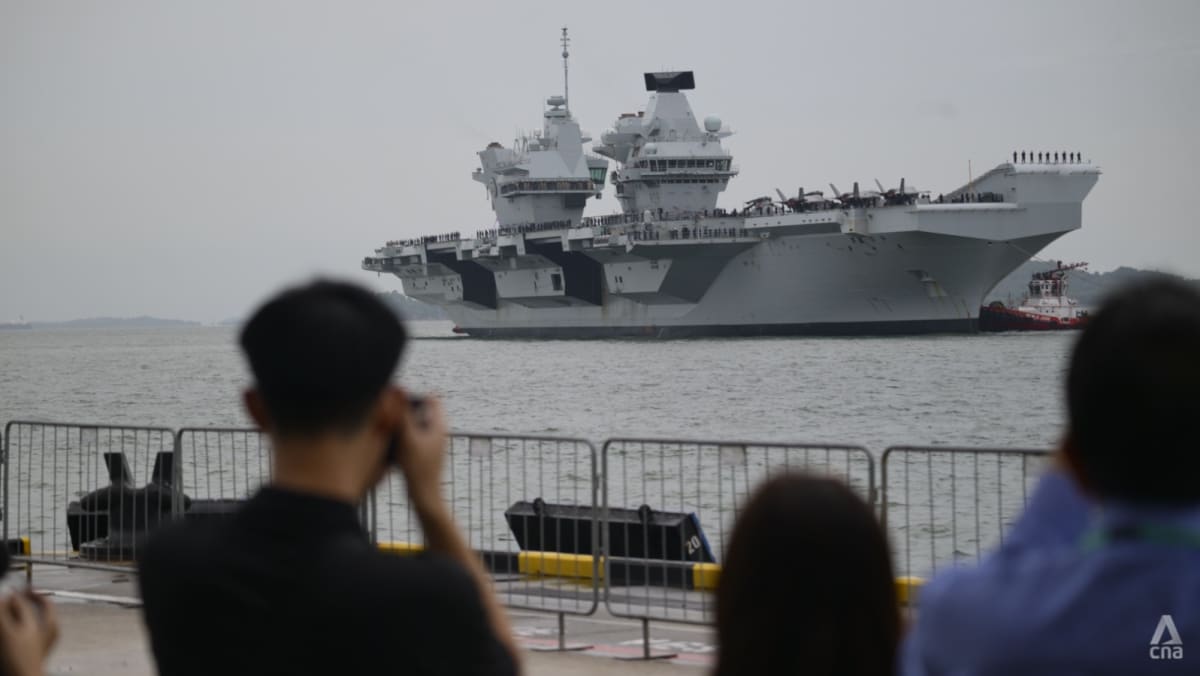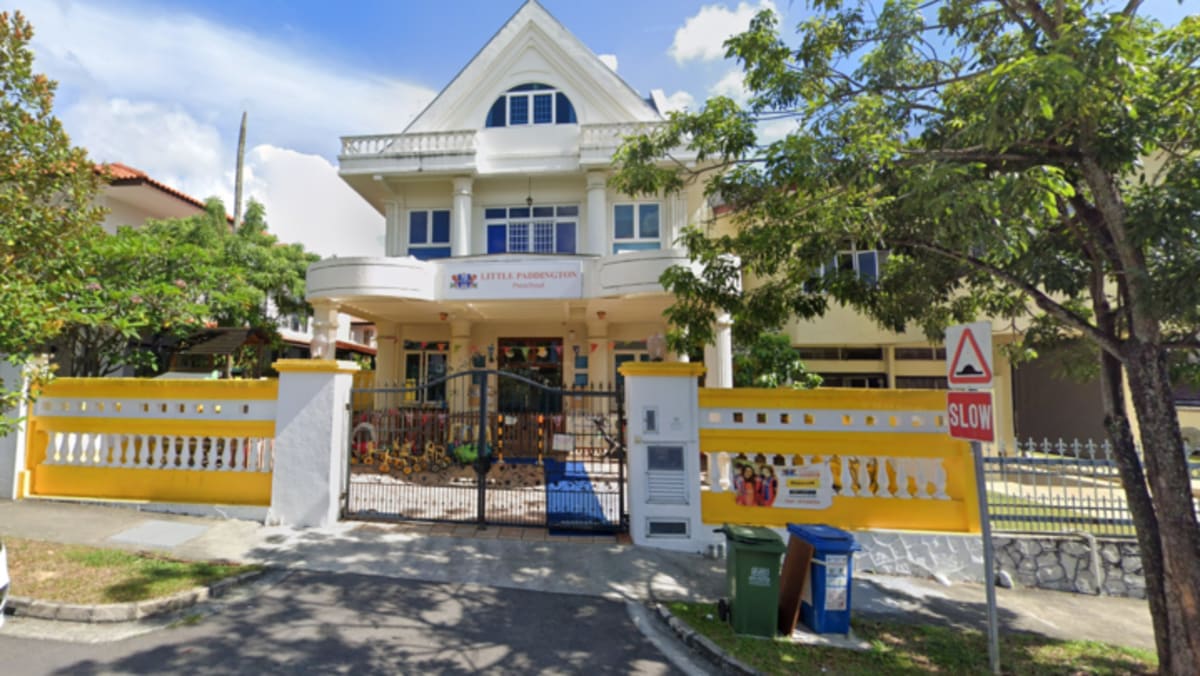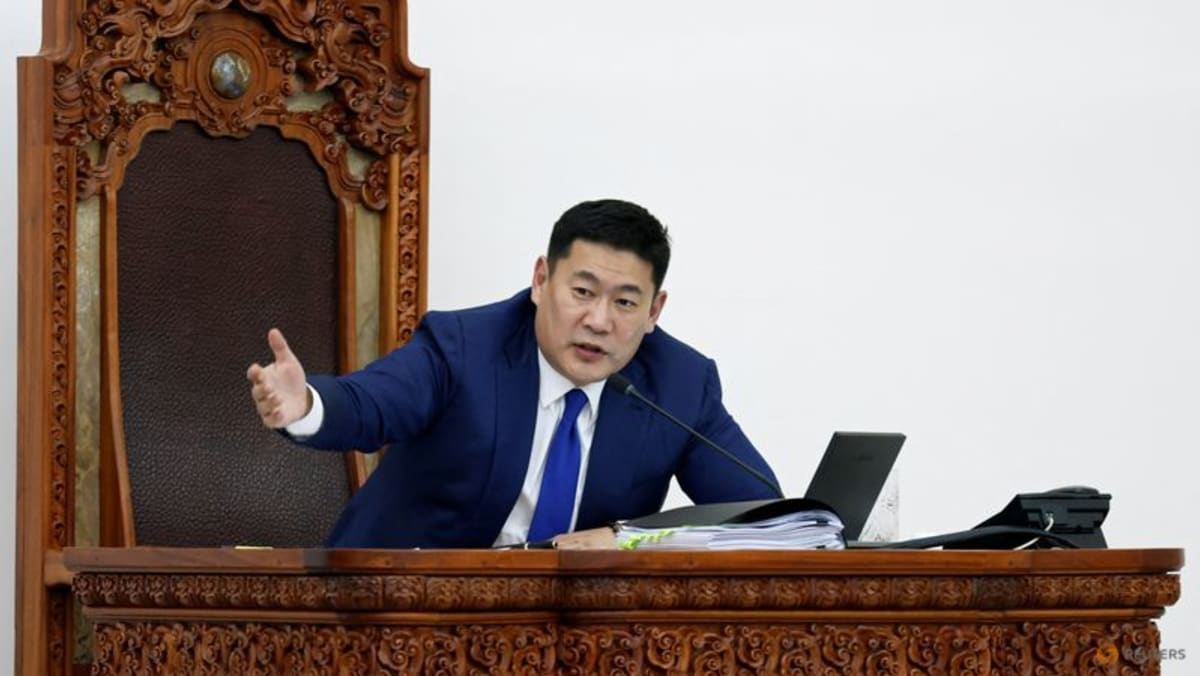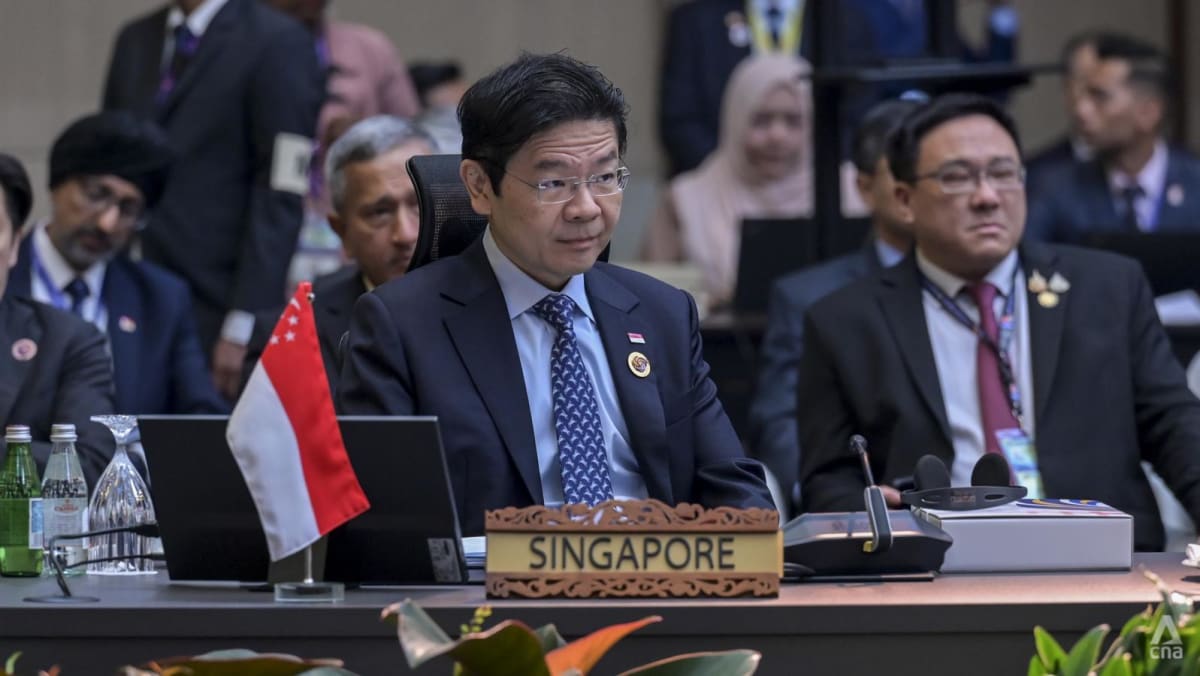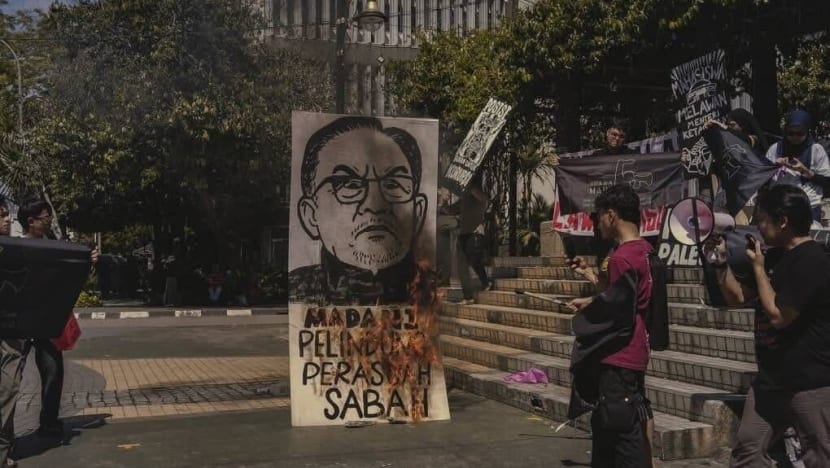
Viral photo of a caricature of Malaysia Prime Minister Anwar Ibrahim set ablaze at the "Gempur Rasuah 2.0" anti-corruption rally in Kota Kinabalu, Sabah on Jun 22, 2025. (Photo: Facebook/Suara Mahasiswa UMS)
KOTA KINABALU, Sabah: Students involved in an anti-corruption rally where they burned a caricature of Prime Minister Anwar Ibrahim are facing a police probe and possible expulsion.
The symbolic burning of the premier has also sparked criticism from a number of politicians from the ruling coalition.
Sabah police chief Jauteh Dikun said on Monday (Jun 23) that the police were investigating the university students purportedly from the Universiti Malaysia Sabah (UMS) for allegedly failing to comply with conditions set under the Peaceful Assembly Act during the rally over the weekend, according to local media.
“We have received about six police reports so far and opened three investigation papers. There are about nine offences identified, for example incitement involving the 3Rs (race, religion and royalty), burning in a public space and bringing flammable materials to the gathering,” Jauteh was quoted as saying by local news outlet Malay Mail.
Jauteh said that they have started to call the students in, and have yet to take statements from any of them.
He also said that police would investigate reports from the students that a man, allegedly “dressed to resemble a Special Branch officer” had damaged one of their cars with acid.
He added that the protest in Kota Kinabalu was witnessed by “many tourists” as it was in a public place and had sparked fear, Daily Express reported.
Asked about potential charges the students may face, Jauteh said investigations would proceed under various laws, including the Penal Code and Sedition Act 1948.
“Once completed, we will refer (the investigation paper) to the Attorney-General’s Chambers for the next course of action to be taken,” Jauteh was quoted as saying by Free Malaysia Today (FMT).
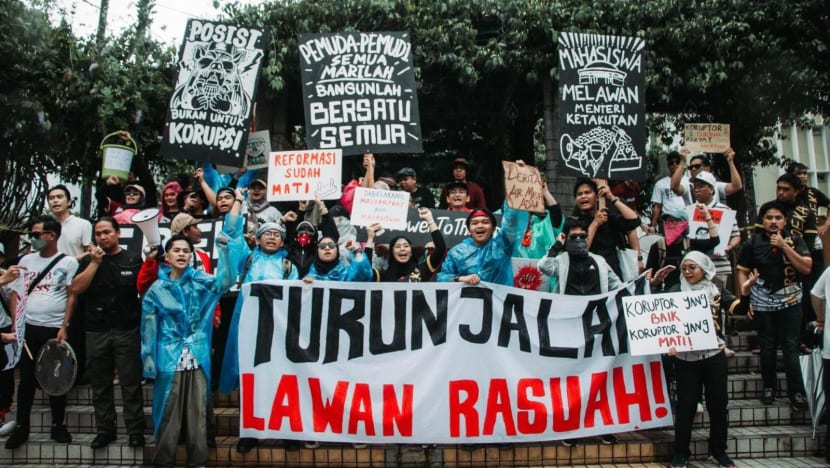 Some student activists holding a banner which reads "Go to the streets to oppose corruption". (Photo: Facebook/Andi Norasheda)
Some student activists holding a banner which reads "Go to the streets to oppose corruption". (Photo: Facebook/Andi Norasheda)
The “Gempur Rasuah 2.0” student rally, organised by a group calling themselves “Suara Mahasiswa UMS” or “Voices of UMS Students” began at the Suria Sabah shopping centre and moved through the city’s main roads before culminating in a sit-in at Lintasan Deasoka at Gaya Street.
The rally, which began at about 1pm on Saturday and continued until 11am on Sunday, was attended by around 100 students and members of the public, who demanded action on corrupt officials and better governance, including a solution to the perennial water shortage, especially at the university.
“No arrests have been made so far but beginning today (Monday), several individuals involved will be called in to provide their statements,” Jauteh said at a press conference at Sabah Police Headquarters, as quoted by Bernama.
According to Jauteh, the organisers had submitted a notification to the police, as required under the Peaceful Assembly Act 2012, which the police then responded to with 15 conditions to ensure public order was maintained.
“Many people misunderstand the process. The Act does not approve or license rallies - it simply outlines the procedure for organisers to notify the police and for the police to respond. Our role is to help maintain public order and safeguard everyone involved, including the participants,” Bernama quoted Jauteh as saying.
“Unfortunately, in this case, the organisers failed to comply with the stated conditions. While voicing their concerns is their right, it must be done responsibly and without provocation.”
In a statement on Monday, the university’s vice-chancellor Kasim Mansor said it had identified 13 students from the rally who may face disciplinary action, including suspension or expulsion under the Universities and University Collect Act (Amended) 2012.
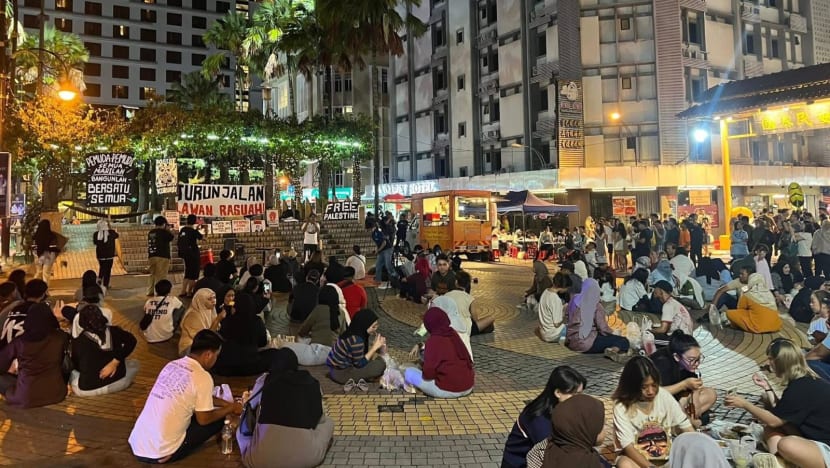 The rally was attended by around 100 students and members of the public. (Photo: Facebook/Muhamad Fadhil Muhamad Kasim)
The rally was attended by around 100 students and members of the public. (Photo: Facebook/Muhamad Fadhil Muhamad Kasim)
Among the 13, two were directly involved in burning the caricature of the prime minister, an act which the university “strongly condemns”.
Kasim added that a disciplinary committee comprising appointed academicians would be formed soon to investigate the matter and determine appropriate measures to be taken.
“The committee will call each student individually to give their explanation regarding the incident that occurred during Sunday’s rally,” he said, as quoted by Malay Mail.
Meanwhile, students from the university justified their move by saying that they had ensured a safe distance between protest participants and the public with their symbolic act and wanted a bold move to get their message across to Anwar’s unity government.
They had also cleaned up the burn marks on the ground with brushes and soap after the incident, Malay Mail reported.
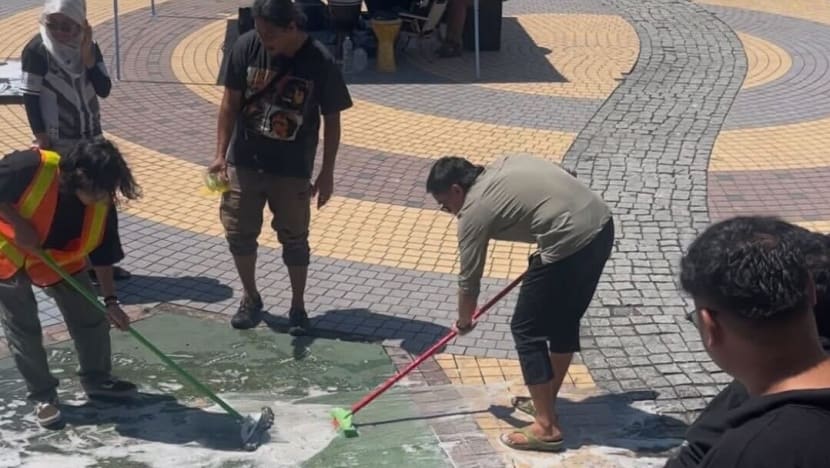 Participants seen cleaning up burn marks on the ground. (Photo: Facebook/Suara Mahasiswa UMS)
Participants seen cleaning up burn marks on the ground. (Photo: Facebook/Suara Mahasiswa UMS)
BURNING OF PM ANWAR’S CARICATURE SLAMMED AS "EXTREME AND DISRESPECTFUL"
According to local media, the rally was mostly uneventful but took a turn on Sunday when the students set fire to the hand-drawn caricature of Anwar, which sparked concern among several leaders of parties within the ruling coalition.
Anwar’s Parti Keadilan Rakyat (PKR) youth chief Kamil Munim in a statement on Monday slammed the burning of the prime minister’s caricature as “extreme and disrespectful”, which does “nothing to help resolve the issue being fought for”.
“It cannot even be considered a peaceful protest as it posed a danger to the individuals and the public,” he said on Instagram, in a post which was also shared by the party’s youth wing page.
“It fails to convey any meaningful message to the public … it is just an empty act meant to appear bold to grab public attention.”
Akmal Saleh, youth chief of the United Malays National Organisation (UMNO) which is part of the ruling coalition, has also criticised the student activists, saying that while they needed to be bold in fighting for a cause, it did not mean they had to be “stupid and rude”.
“Being courageous (in speaking up) does not mean decency has to take a back seat,” he said in a Facebook post on Monday evening, as quoted by FMT.
“Just as we were enraged when images of our past national leaders were treated with such scorn, we must too be upset with those who do the same with our current leaders, even if they are from opposing parties,” Akmal added.
While Akmal did not specify past incidents, FMT noted that posters of former UMNO president Najib Razak and leader of Malaysia’s Islamic party Parti Islam Se-Malaysia Abdul Hadi Awang were reportedly stomped on by participants of the Bersih anti-corruption rally in 2015.
In September the same year, effigies of DAP stalwart Lim Kit Siang and his son, then Penang Chief Minister Lim Guan Eng were burnt at an event in Kelantan to counter the earlier Bersih gathering.
“ANWAR ONCE LED SIMILAR DEMONSTRATIONS”, SAYS A STUDENT
A student from the university has come forward to defend the protest and the symbolic act of burning the caricature of the prime minister, noting that Anwar once led similar demonstrations during his university days and in the 1970s.
Final-year student Fadhil Kasim in a Facebook post reminded the public that when Anwar was a student leader at Universiti Malaya, he had also led a protest where he and others burned a book written by Malaysia’s first Prime Minister Tunku Abdul Rahman.
“At that time, they believed the book was ‘subversive’ so Anwar and his group held a protest and even burned the book in public,” Fadhil wrote in a post which also included an old black and white photo of Anwar and several others setting fire to some items on the floor.
Fadhil said that student protesters today have been unfairly criticised by Anwar’s supporters including groups such as Malaysian Islamic Youth Movement Angkatan Belia Islam Malaysia (ABIM) and Angkatan Muda Keadilan, the PKR Youth wing which Kamil is chief of.
“People were quick to attack our actions and talk about morals and manners but they ignored the bigger issue, the people’s problems and corruption,” Fadhil said, adding that these groups are more interested in appeasing the prime minister than standing up for the people.
In the Facebook post, Fadhil had identified himself as “the student who burned the caricature of Anwar”.
“The truth is Anwar is now the prime minister, not a student anymore … It is different, he seems more focused on keeping the GRS (Gabungan Rakyat Sabah) government strong in his Madani (unity) administration … although GRS is facing major corruption scandals,” Fadhil said.
GRS is a Malaysian coalition of Sabah-based parties, established in 2020.
A mining scandal emerged in 2024 after a series of leaked videos allegedly showing Sabah assemblymen discussing bribery and misconduct linked to mineral exploitation projects, putting GRS in the spotlight.
This takes place ahead of state polls expected soon. Sabah is a key support base that helped Anwar secure a parliamentary super majority in the 2022 General Elections.
Fadhil pointed to when Anwar was part of the opposition and would often visit Sabah and speak about issues like corruption, logging, poor roads and Sabah’s rights.

